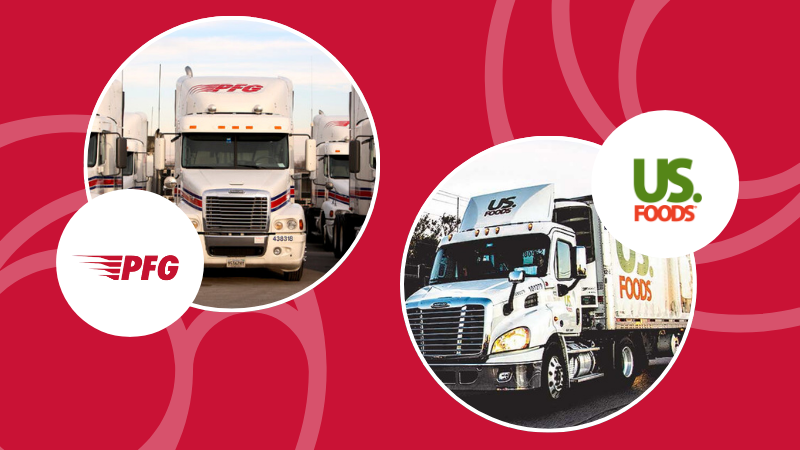
CHICAGO, July 11, 2025 —Foodservice distribution giant US Foods is exploring the possibility of acquiring competitor Performance Food Group (PFG), the Bloomberg news service reported Friday.
A merger would create a distribution behemoth with annual revenues of nearly $100 billion, outstripping current market leader Sysco Corp., whose sales for the 12 months ending March 30 topped $80 billion.
Neither party to the possible deal has publicly confirmed or denied the report. But PFG’s stock price shot up 10% after the Bloomberg report came to light, signaling Wall Street’s belief that a transaction may indeed be under consideration.
The report immediately sparked speculation about whether government regulators would allow a US Foods-PFG merger to proceed. Sysco tried in 2013 to buy US Foods for $8.2 billion but was blocked by the Federal Trade Commission for anti-trust reasons. The regulators ruled that the surviving company would control too much of the U.S. foodservice distribution business, with a market share pegged by the officials at more than 75%. Sysco disputed that figure, arguing that the distribution business is a highly segmented trade with dozens of local and regional players.
Ironically, Sysco agreed at that time to sell 11 US Foods facilities to PFG to allay the regulators’ fears. The officials were not reassured and maintained their veto.
The Top 3 distributors have all been investing in infrastructure, particularly technology, to contend with post-pandemic changes in the distribution marketplace. During the COVID crisis, foodservice operators turned increasingly to e-commerce companies for their supplies, relying on Amazon and Fedex to handle the transfer of foods directly from manufacturer to restaurant back doors.
All three have taken steps recently to provide supplies in more of an on-demand basis. Sysco, for instance, is testing two cash-and-carry outlets in Texas. US Foods is expanding its Pronto operation, which provides small orders on a same-day service. PFG has jumped into e-commerce, using the technology from a recent acquisition to provide customers with small orders delivered within two days by carriers like Fedex, UPS and Amazon.
Further consolidation of distributors would likely be taken as bad news by the food-away-from-home business. Although broadline haulers say the resulting economies of scale translate into more timely deliveries and lower prices, operators and manufacturers say the trend leaves them with fewer pipelines for getting products into the supply channel.
As Managing Editor for IFMA The Food Away from Home Association, Romeo is responsible for generating the group's news and feature content. He brings more than 40 years of experience in covering restaurants to the position.
Cover image courtesy: Closed Loop Project